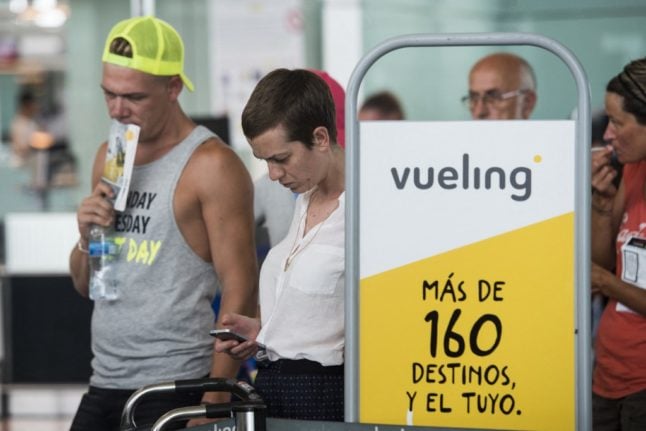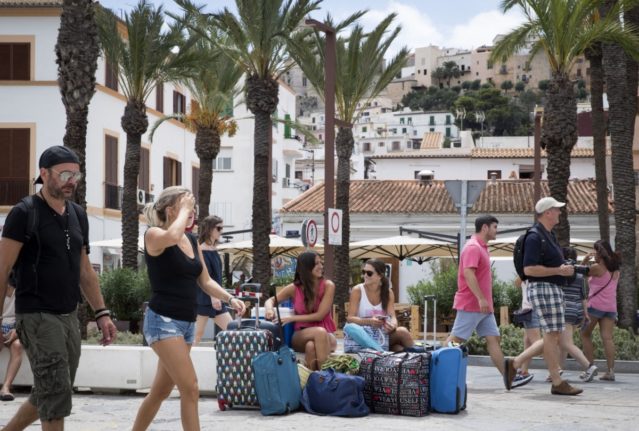Vueling has cancelled 58 flights to and from Spain scheduled for Monday November 7th as a “preventive measure”, airline officials announced.
This is the fourth day of strikes by cabin crew since the stoppages began last Monday, when 54 flights were cancelled. Sixty-two flights were also cancelled on Friday and Sunday respectively.
Vueling representatives report that 462 out of the 520 flights that were initially scheduled will go ahead as planned on Monday, which represents 89 percent of the total.
At Barcelona’s El Prat airport, 82 percent of Vueling flights will operate on Monday.
The airline’s communication team says that 95 percent of Monday’s affected passengers have been allocated seats on alternative flights or offered a refund.
Stoppages are expected to take place every Friday, Sunday and Monday until January 31st, 2023. They have also added December 6th, 8th, 24th and 31st and January 5th to the strike schedule as they’re key dates for holiday travel in Spain.
If you have booked flights with Vueling, you can check if your flight is affected here, although in most cases Vueling notifies passengers in advance.
Spain’s Ministry of Transport estimates that up to 3.2 million passengers, equal to 70,500 a day, could be affected by the industrial action.
The reasons for Vueling’s cabin crew strike
Vueling staff are demanding a wage rise in line with inflation. The union representing the workers, Stavla (Airline Flight Auxiliary Crew Union), have requested wage increases of 13.4 percent after Vueling only offered a two percent rise.
READ MORE: Spain strike woes continue for low-cost airlines Vueling and Ryanair
Vueling did reach an agreement with the Workers’ Commissions Union (CC.OO) in August to increase wages by 6.5 percent, but Stavla rejected the deal and demanded a higher salary increase.
Staff are also protesting the precarious work conditions that have been experienced within the sector since before the pandemic, with many complaining of being overworked.
Vueling CEO Marco Sansavini has described the wage increases demanded by cabin crew as unfeasible and has called for further talks.
“You cannot raise your cost structure by 30 percent all of a sudden, because you put yourself completely out of the market and it would have a negative impact on the same job,” he told La Vanguardia’.
The airline is still suffering from losses of €1 billion incurred during the Covid-19 pandemic, in addition to an increase in debt of €260 million to cover the impact of Covid-19 on its business. Vueling did reach an agreement with the Workers’ Commissions Union (CCOO) in August to raise salaries by 6.5 percent, but Stavla refused to sign and now wants an even higher salary increase.
“We have an out-of-date collective agreement, we have tried until the last minute to build bridges with the company and it has been impossible,” Stavla head Guapalupe Romero told Spanish radio broadcaster RNE.



 Please whitelist us to continue reading.
Please whitelist us to continue reading.
Member comments